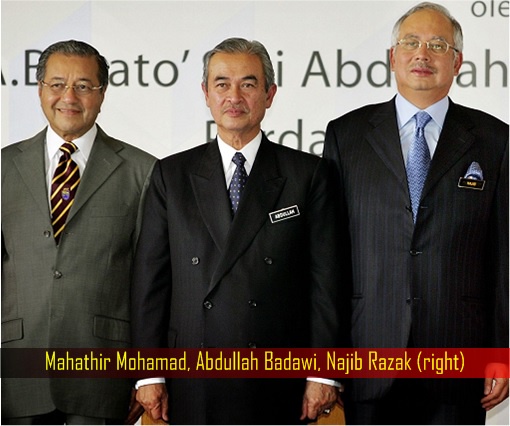Opinion: Who Divided The Malays? Tun M or His Successors?
2 Jul 2024 • 7:30 PM MYT

Kpost
Operations consultant who pens the truth in fairness with understanding

Photo Credit: FinanceTwitter
Tun Dr. Mahathir Mohamad, Malaysia's longest-serving prime minister, contends that the division within the Malay community emerged due to the failures of those who succeeded him.
He argues that during his 22-year tenure from 1981 to 2003, the Malays were largely united under the United Malays National Organization (UMNO), which allowed Barisan Nasional (BN) to dominate five general elections with a two-thirds majority. However, according to Mahathir, this unity began to unravel with the leadership of his immediate successor, Abdullah Ahmad Badawi.
The Decline Under Abdullah and Najib
Tun Abdullah Ahmad Badawi, who took office in 2003, led BN to a historic victory in the 2004 general election, securing 198 out of 219 parliamentary seats. Despite this success, Mahathir claims that signs of division were already apparent, and by the 2008 general election, BN had lost its two-thirds majority and control of five state governments. He attributes these setbacks to internal issues and perceived favoritism within Abdullah's administration.
The situation worsened under Abdullah's successor, Dato' Seri Najib Razak, whose tenure was marred by the infamous 1MDB scandal. This financial scandal significantly tarnished UMNO's credibility and further eroded Malay unity, culminating in BN's defeat in the 2018 general election by Pakatan Harapan (PH), led by none other than Mahathir himself.
Tun M's Tenure and Early Divisions
Despite Mahathir's claims, political analysts argue that the seeds of division were sown during his own tenure. Hisomuddin Bakar of Ilham Centre points to the pivotal moment in 1998 when Mahathir sacked his deputy, Anwar Ibrahim. This decision fractured UMNO's support base and bolstered the Islamic Party of Malaysia (PAS), which saw a significant increase in parliamentary seats in the subsequent general election.
Additionally, Mahathir's decision to form Bersatu, a splinter party from UMNO, and later contest under the PH banner in the 2018 general election, further contributed to the fragmentation of Malay political power. His actions led to the formation of multiple Malay-centric parties, weakening their ability to secure a majority in general elections.
Longstanding Internal Conflicts
Mazlan Ali of Universiti Teknologi Malaysia underscores other significant crises during Mahathir's leadership that contributed to Malay disunity. The resignation of Deputy Prime Minister Tun Musa Hitam in 1986 and the 1987 UMNO crisis, which resulted in the party being declared illegal and the subsequent formation of Semangat 46, are notable examples. These events, combined with the fallout from Anwar's dismissal in 1998, reflect a pattern of internal strife that predates Mahathir's successors.
While Mahathir attributes the division of the Malay community to the incompetence of his successors, evidence suggests that the roots of this fragmentation can be traced back to his own leadership. The internal conflicts, high-profile dismissals, and formation of splinter parties during his tenure set the stage for the disunity that followed.
Thus, the division of the Malays appears to be a multifaceted issue, influenced both by Mahathir's actions and the subsequent leadership of Abdullah and Najib.
By: Kpost
No comments:
Post a Comment